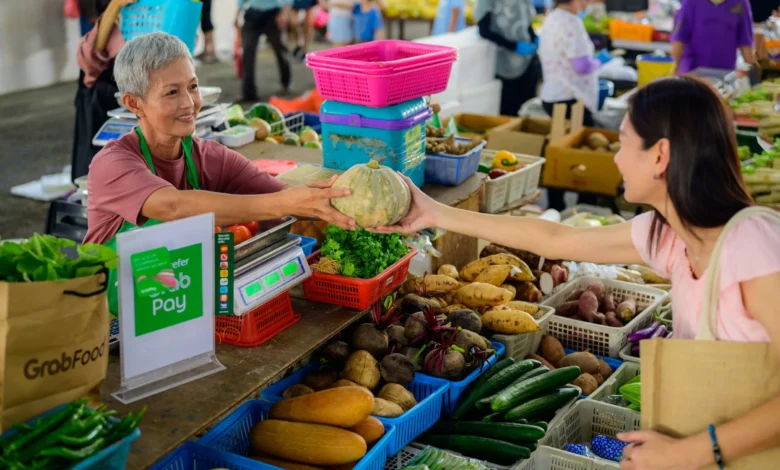Traveling to Thailand? Learn These Essential Thai Phrases Before You Go

For many people, Thailand is a fantasy country with great beaches, rich history, and cuisine. On the other hand, knowing a few Thai words will aid you while you are organizing a trip there. Acquiring some fundamental terms will help your experience to be more pleasant and seamless. It not only facilitates your interaction with residents but also demonstrates regard for the culture. Modern technologies like eSIM Thailand also make it simpler than ever to remain in touch and access translating tools on the run. So explore some basic Thai words and use Thailand eSIM before you start packing to help your trip be even more fantastic.
Why Learning Thai Phrases Matters?
Sometimes communicating in a nation where the language is different from your own might be difficult. Many people in Thailand speak some English, particularly in tourist regions, but understanding simple Thai words would help much more.
Cultural Tolerance
Thai people value efforts by foreigners to use their language. The effort counts even if your pronunciation is not perfect. Saying thank you, greeting someone in Thai, or using courteous language can help to greatly improve the nature of contacts. This is a basic approach of honoring the people and the culture.
Useful Advantages
Knowing a few Thai words will also help your trips to be lot more pleasant. Speaking Thai will enable you, for example, ask for directions, negotiate at a market, or order meals more swiftly and successfully. Simply because you were able to ask about them in Thai, you might even find local sites off the regular tourist route.
Improved Sensual Experience
Speaking the native tongue, even in small amounts, can help you to experience Thailand more authentically. You will be able to interact with people in a way that transcends simple tourism and really touch with the culture.
Important Thai Expressions for Travelers
Here are some simple Thai words that will come in rather helpful during your journey. These easy-to-learn sentences cover everything from greetings to meal ordering.
Simple Courtesy and Greetings
1. “Sawasdee”—Hello/Goodbye
Thailand’s most often used greeting is “sawasdee”. Hello and farewell both make use of it. Saying “Sawasdee,” it’s courteous to add “khrap” if you’re male and “kha,” if you’re female. For men, you would thus say “Sawasdee khrap,”; for women, “Sawasdee kha.” This little addition expresses decency and respect.
2. “Khob khun” (Thank you)
Thanking someone in Thai is straightforward. Just say “Khob khun,” then remember to add “khrap” or “kha,” based on your gender. It’s a straightforward approach to express thanks in any kind of context.
3. “Chai/Mai cha” (Yes/No)
Saying “Chai” is yes; saying “Mai chai” is no. Though simple, these are quite helpful in many kinds of talks.
4. “Kor tod” (Excuse me/Sorry)
“Kor tod” is the term to use whether you have to call someone’s attention or apologies for running across them. It’s courteous and versatile for many contexts.
5. Politeness Markers – “Khrap” and “Kha”
Thai society values respect highly, hence ending your sentences with “khrap,” or “kha,” is a straightforward approach to be polite. It’s crucial to keep in mind that these words should be used particularly when dealing with elderly or powerful individuals.
Directions and Vehicle Travel
When you can ask for directions or speak Thai with drivers, getting about Thailand is simpler. These sentences might be useful.
1. “Bpai” (Go) / “Ma” (Come)
These basic directional signals will enable you to advise a taxi or tuk-tuk driver. Say “Bpai” if you want someone to come towards you or “Ma” if you wish someone to be straight forwardly directed.
2. “Tee nai?” (Where is…?)
One asks where something is using “Tee nai?” For a restaurant, for instance, you may ask “Restaurant tee nai?” When you’re investigating a new location, this is a quite useful sentence.
3 .”Taxi” / “Tuk-tuk” / “Rot Fai” (Train)
Knowing the local names for several kinds of transportation will help you get around more easily. “Taxi” is simple; yet, “Tuk-tuk,” a three-wheeled vehicle, and “Rot Fai,” a train, are particular to Thailand.
4. “Lod mai?” (Is there a discount?)
Especially at markets, bargaining is rather common in Thailand. You might ask for a discount by saying “Lod mai?” It’s a courteous approach to find out whether you might get a lower deal.
Dining and Ordering Food
Thai cuisine is well-known all around, hence a highlight of each vacation to Thailand is sampling local cuisine. These words will enable you to negotiate menus and interact with restaurant staff:
1. “Arroy” (Delicious)
Say “Arroy,” which means fantastic, to compliment the chef. You most likely will use this word rather often!
2. “Menu, na khrap/kha?” (May I have the menu?)
Getting the menu is simple. You’ll get one straight away just say “Menu, Na khrap/kha?”
3. “Mai phet” (Not spicy)
Thai cuisine can be really hot; if you want gentler cuisine, request no spice with “Mai phet”.
4. “Geb tang” (The bill, please)
Say “Geb tang” to request the bill when ready to pay. This is a basic sentence that will help your dinner go without incident.
5. “Nam” (Water) and “Gai” (Chicken)
When ordering meals, here are two often used words you might find handy. Both mainstays of Thai cuisine, “nam” is water and “gai” is chicken.
Shopping and Bargaining
Thailand’s shopping and bargain markets are lively and overflowing with distinctive goods. Knowing a few terms will help your shopping experience to be even better.
1. “Tao rai?” (How much?)
This is the sentence to request the cost of anything. Any sort of purchasing in Thailand depends on it.
2. “Phaeng mak” (Very expensive)
You could remark “Phaeng mak.” if the price seems excessive. That’s a courteous approach to say something is costly.
3. “Lod dai mai?” (Can you lower the price?)
In Thailand, particularly in markets, the shopping experience includes negotiating. Ask the merchant whether you might get a discount using “Lod dai mai?”
Tips for Practicing and Remembering Thai Phrases
Though it requires work, learning a new language is not difficult. Here are some pointers to assist in your memory of these sentences and application on your trip:
Language Apps and Resources
Many language programs allow you to practice Thai sentences. Given you probably have an eSIM, you can access these apps anywhere, at any time. They frequently feature pronunciation rules, which are particularly useful for learning the tones of the Thai language.
Practice with Locals
Not hesitate to practice with residents. Most Thai folks are glad to assist you in learning and patient. They would value your effort even if you make blunders.
Cultural Attention
Watching Thai films, listening to Thai music, or simply just hearing the language spoken around you will help you grow used to the sounds and rhythms. This kind of immersion might hasten your learning and increase its enjoyment.
Conclusion
Learning some simple Thai words will help your trip in Thailand be much better. It respects the culture, facilitates more natural navigation, and makes your contacts with residents more pleasant. An eSIM’s ease allows you to remain in touch and use language apps to help your educational process. So spend some time honing these fundamental Thai words as you get ready for your trip. It will add even more unforgettable quality to your trip in Thailand. Always Travel safely!
